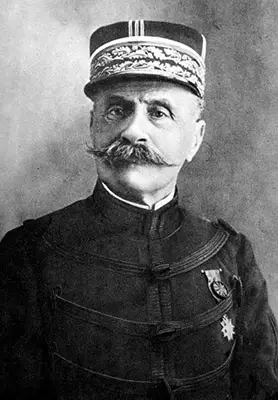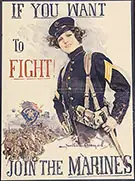Ferdinand Foch
Born in the city of Tarbes, France on October 2, 1851; Ferdinand Foch was the son of a barrister. The religious faith of young Ferdinand was Roman Catholic Growing up young Ferdinand was a great listener and admirer of his maternal grandfather. This predecessor of the young Foch was involved heavily in the militaristic era of Napoleon.
His early education was in Tarbes, Rodez, in Southern France then on to the Jesuit College in St. Etienne. During this period the Frenchman discovered he had a deep passion for military history and the soldier’s life was the path he intended to take in his career.


The young military minded Ferdinand entered school of Ecole Polytechnique where he would learn much in the way of military history. The soldier to be admired the campaigns of leaders such as Napoleon and would pattern much of his career the same way.
Ferdinand Foch studied hard in his education and great progress to continue his formal education. After Polytechnique, Foch enrolled at the French war college, Ecole de Guerre. Just as before, the military mind of Ferdinand absorbed continuously and his love for all things military grew.
He was such a favorite among the faculty and staff with his knowledge and formulating mind that he became a teacher in no time. During tis this time in school he was also a soldier and eventually earned the rank of Major while lecturing at the war college. It was during this period he would write two books, The Principles of War and De la Conduite de la Guerre.
From 1901 to 1907, Foch served in the battle field as an officer of the French Army. From 1908 until 1911 he would be the Commandant at the war college he once attended. Eventually after once again serving in the military, Ferdinand Foch became Chief of Staff in 1917.

When WWI broke out in 1914, now a General, Ferdinand Foch was given command over the Ninth Army. His first military involvement and victory was to halt several German skirmishes at the First Battle of the Marne. During this campaign he apparently stated, “Hard pressed on my right. My center is yielding. Impossible to maneuver. Situation excellent. I attack.” His optimism drove his troops to push hard on the advancing Germans and see success.
This successful venture drawn notice from the higher generals and Foch was made Assistant Commander-in-Chief of the French armies of the North. In another battle, the Battle of Ypres, Foch was successful in driving back advancing German troops. However, not everything would be in General Foch’s favor in WWI.

Foch was beginning to see French loss of ground by 1915 and heavy casualties in the battle of Somne in the summer of 1916. Disheartened, Foch was removed from active service and moved to administration duties as Chief of the General Staff. Although it was a leadership role, it also spoke to many questioning his tactics.
However, by the Fall of 1917 Foch was directed to lead Italian forces in re-building their offensive positions after the Battle of Caporetto loss. By the Spring of 1918, Germany was beginning their push on Allied positions in Europe and causing the Allies to maintain a more defensive posture. Foch was directed to become Supreme Commander of the Allied Forces and slowly began a plan to push back on the ragged German line.

The turning point for allied victories occurred at the Second Battle of the Marne. For distinguished leadership in halting the Spring Offenses of the German army at Marne, Foch was named to the rank of Marshall of France.
Not one to dwell on the moment of victory; Foch still had the task of bringing Germany to the surrender table. Working alongside Allied commanders, such as General John Pershing; Foch planed a series of attacks to not allow the weakened German forces to re-group for success. Victories occurring at St Mihiel and Amiens, as well as Argonne and Flanders further depleted the German aggressors.

In November of 1918, an Armistice with Germany was signed on Ferdinand Fochs own train car. Although peace was made, Foch was not a fan of the final Treaty of Versailles. He felt the Germans maintained too much and were not made to be properly punished by removing the Rhineland from their control. As he put it, “This is not peace. It is an armistice for 20 years.”
Ferdinand Foch passed away in 1929.



